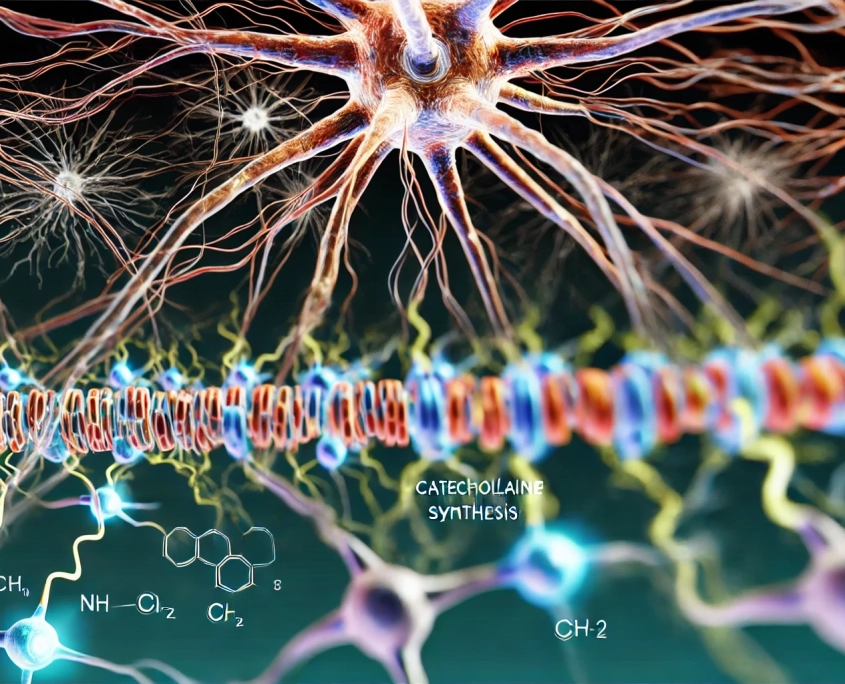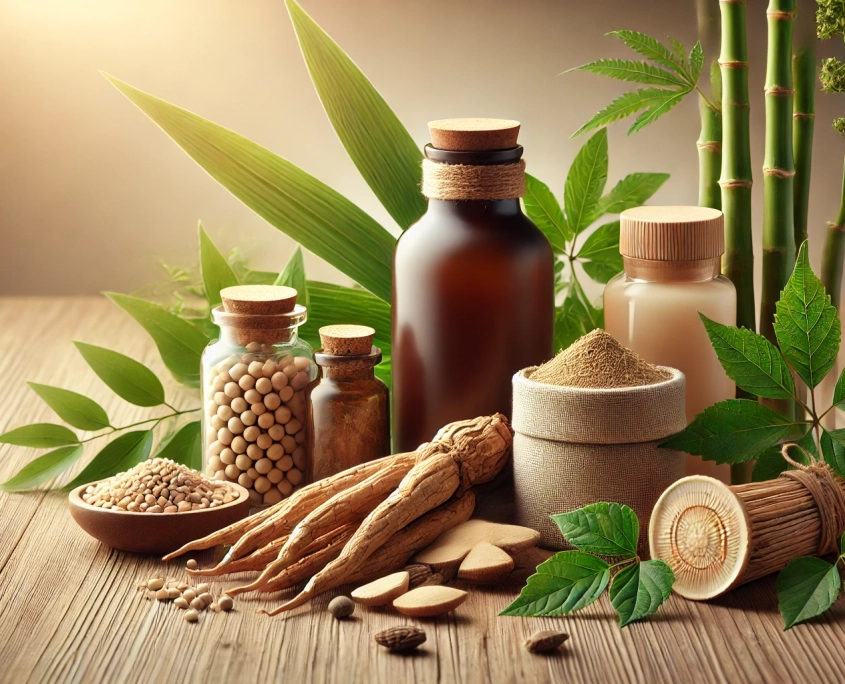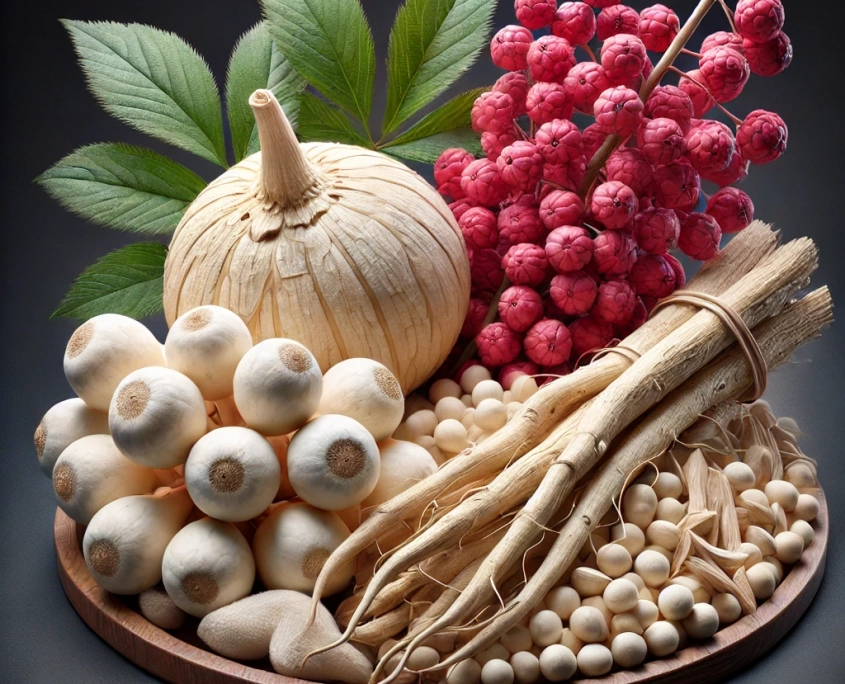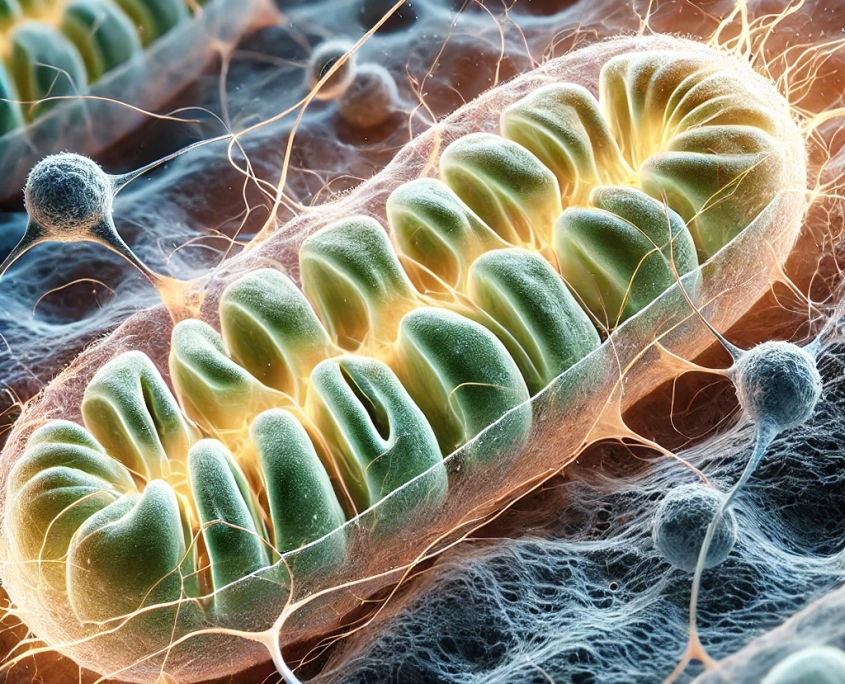
ClearHost combines 19 traditional herbs, each offering unique medicinal properties, to create a comprehensive formula that supports holistic health. This paper delves into the biochemistry, therapeutic rationale, and modern applications of each ingredient. ClearHost is designed to support digestion, immune health, respiratory function, and overall vitality through its synergistic blend of potent herbal ingredients.
1. Cardamom (Elettaria cardamomum) – Seed
Biochemical Role: Cardamom is rich in volatile oils, flavonoids, and phenolic compounds. These bioactive constituents are known for their antioxidant, anti-inflammatory, and digestive-enhancing properties.
Therapeutic Rationale:
In traditional Ayurvedic and Chinese medicine, cardamom is used to support digestion and respiratory health. Modern studies validate its ability to reduce inflammation and oxidative stress, making it valuable for digestive comfort and respiratory function.
Use Cases:
- Digestive discomfort and bloating
- Supporting respiratory function
- Antioxidant and anti-inflammatory support
Mechanism of Action:
Cardamom’s volatile oils stimulate digestive enzymes, helping to improve digestion and alleviate bloating. Additionally, its anti-inflammatory and antioxidant properties help reduce oxidative stress, particularly in the digestive and respiratory systems.
2. Pulsatilla (Anemone pulsatilla) – Whole Plant
Biochemical Role: Pulsatilla contains saponins, tannins, and alkaloids, which contribute to its calming, sedative, and anti-inflammatory effects.
Therapeutic Rationale:
Traditionally used in European and Chinese herbal medicine, Pulsatilla is valued for calming the nervous system and relieving respiratory issues like coughs and bronchitis.
Use Cases:
- Calming the nervous system
- Supporting respiratory health
- Mild pain relief
Mechanism of Action:
Pulsatilla works by interacting with GABAergic pathways in the brain to promote relaxation. It also reduces inflammation in respiratory conditions, helping to alleviate coughs and bronchial irritation.
3. White Atractylodes (Atractylodes macrocephala) – Root
Biochemical Role:
White atractylodes is rich in polysaccharides, essential oils, and sesquiterpene lactones, which enhance digestive function and immune support.
Therapeutic Rationale:
A key herb in traditional Chinese medicine, white atractylodes is used to strengthen the digestive system, particularly the spleen and stomach, and to boost energy levels.
Use Cases:
- Supporting digestive health
- Enhancing immune function
- Reducing bloating and promoting nutrient absorption
Mechanism of Action:
Polysaccharides in white atractylodes stimulate digestive enzyme production, enhancing digestion and absorption of nutrients. Its immune-boosting properties come from the ability to activate immune cells, providing a defensive boost against infections.
4. Plantago Seed (Plantago asiatica)
Biochemical Role:
Plantago seed contains mucilage, which soothes mucous membranes, and iridoid glycosides, which reduce inflammation.
Therapeutic Rationale:
Plantago seed has been traditionally used to soothe inflammation in the digestive and respiratory systems, while also supporting urinary health.
Use Cases:
- Soothing the digestive tract
- Supporting urinary health
- Reducing respiratory inflammation
Mechanism of Action:
The mucilage in plantago seeds coats the digestive and respiratory tracts, providing a soothing and protective layer that reduces irritation and inflammation. Its anti-inflammatory properties help in calming respiratory issues like bronchitis.
5. Rhubarb Root (Rheum palmatum)
Biochemical Role:
Rhubarb root contains anthraquinones and tannins, which promote digestive regularity and reduce inflammation.
Therapeutic Rationale:
Traditionally used for its digestive effects, rhubarb root is a mild laxative that also supports liver detoxification and reduces inflammation in the gut.
Use Cases:
- Promoting bowel movements
- Reducing digestive inflammation
- Supporting liver function
Mechanism of Action:
Rhubarb’s anthraquinones stimulate peristalsis in the intestines, promoting regular bowel movements, while its tannins soothe the digestive tract by reducing inflammation and irritation.
6. Codonopsis (Codonopsis pilosula)
Biochemical Role:
Codonopsis is rich in polysaccharides and alkaloids, which boost immune function and enhance vitality.
Therapeutic Rationale:
Often considered a milder alternative to ginseng, codonopsis is used in Chinese medicine to increase energy levels and strengthen the immune system.
Use Cases:
- Enhancing immune function
- Reducing fatigue
- Supporting overall vitality
Mechanism of Action:
Polysaccharides in codonopsis activate white blood cells and support immune function. Its energy-boosting properties come from its ability to increase mitochondrial activity, providing more energy at the cellular level.
7. Licorice Root (Glycyrrhiza glabra)
Biochemical Role:
Licorice root contains glycyrrhizin, flavonoids, and saponins, offering anti-inflammatory, immune-modulating, and adrenal-supportive effects.
Therapeutic Rationale:
Licorice root has been used in various traditional medicine systems for its soothing properties on the respiratory and digestive systems.
Use Cases:
- Supporting adrenal health and combating fatigue
- Reducing inflammation in the digestive and respiratory tracts
- Acting as an expectorant for clearing mucus
Mechanism of Action:
Glycyrrhizin in licorice root enhances cortisol activity, supporting adrenal function. Licorice also coats mucous membranes, reducing inflammation and irritation in the respiratory and digestive systems.
8. Dried Ginger (Zingiber officinale)
Biochemical Role:
Ginger contains gingerol and shogaol, which possess anti-inflammatory, digestive, and circulatory benefits.
Therapeutic Rationale:
Ginger is widely used in both Eastern and Western herbal traditions to improve digestion, reduce nausea, and boost circulation.
Use Cases:
- Digestive support for reducing nausea and indigestion
- Anti-inflammatory effects, especially for joint health
- Improves circulation and reduces cold extremities
Mechanism of Action:
Gingerol improves digestion by stimulating bile and gastric secretions, while its anti-inflammatory properties reduce inflammation throughout the body.
9. Phellodendron Bark (Phellodendron amurense)
Biochemical Role:
Phellodendron bark contains berberine, a potent alkaloid known for its antimicrobial and anti-inflammatory effects.
Therapeutic Rationale:
In Chinese medicine, Phellodendron bark is used to clear heat, resolve dampness, and reduce inflammation, particularly in the digestive system.
Use Cases:
- Anti-inflammatory effects for gastrointestinal health
- Antimicrobial properties that help fight infections
- Supports liver detoxification
Mechanism of Action:
Berberine reduces inflammation by inhibiting pro-inflammatory cytokines and supports gut health by acting as an antimicrobial agent against harmful bacteria.
10. Agastache (Agastache rugosa)
Biochemical Role:
Agastache contains essential oils and flavonoids with anti-inflammatory and digestive benefits.
Therapeutic Rationale:
Traditionally used in Chinese medicine to transform dampness, agastache helps with digestive disorders, nausea, and vomiting.
Use Cases:
- Digestive support for reducing nausea and bloating
- Anti-inflammatory properties for soothing the stomach and intestines
- Antimicrobial effects that help fight infections
Mechanism of Action:
Agastache’s essential oils and flavonoids stimulate digestive enzymes and reduce inflammation in the digestive tract, supporting smoother digestion.
11. Bitter Ginseng (Cynanchum wilfordii)
Biochemical Role:
Bitter ginseng contains saponins and flavonoids that support energy and reduce inflammation.
Therapeutic Rationale:
Used in traditional Korean and Chinese medicine as a tonic to improve vitality and endurance, bitter ginseng is known for its ability to reduce fatigue.
Use Cases:
- Boosts energy and combats fatigue
- Supports immune function and vitality
- Anti-inflammatory properties that help reduce pain
Mechanism of Action:
Bitter ginseng’s saponins support energy production by improving mitochondrial function, while its anti-inflammatory compounds reduce joint and muscle inflammation.
12. Aloe (Aloe vera)
Biochemical Role:
Aloe contains polysaccharides, vitamins, and enzymes, known for their soothing and healing properties.
Therapeutic Rationale:
Aloe has been used for centuries in various cultures to soothe burns, aid digestion, and support skin health.
Use Cases:
- Soothes the digestive tract and reduces inflammation
- Supports skin health and healing
- Acts as a gentle laxative for promoting regularity
Mechanism of Action:
Aloe’s polysaccharides coat the digestive tract, reducing irritation and inflammation. It also acts as a mild laxative, promoting regular bowel movements.
13. Mirabilite (Sodium Sulfate)
Biochemical Role:
Mirabilite contains sodium sulfate, which supports detoxification and fluid balance.
Therapeutic Rationale:
In traditional Chinese medicine, mirabilite is used to soften hardness and relieve constipation, often in cases of heat accumulation.
Use Cases:
- Supports liver detoxification and fluid balance
- Acts as a mild laxative
- Reduces heat and inflammation
Mechanism of Action:
Sodium sulfate helps regulate fluid balance and promote bowel movements, supporting the body’s detoxification processes.
14. Wormwood (Artemisia absinthium)
Biochemical Role:
Wormwood contains sesquiterpene lactones and essential oils with antiparasitic and digestive-stimulating effects.
Therapeutic Rationale:
Wormwood has been used for centuries as a digestive tonic and antiparasitic remedy in both Western and Eastern herbal traditions.
Use Cases:
- Stimulates digestion and bile production
- Acts as an antiparasitic agent
- Reduces digestive discomfort, including bloating and gas
Mechanism of Action:
Wormwood’s sesquiterpene lactones stimulate bile production and help expel parasites from the digestive tract, improving overall digestive function.
15. Amomum Fruit (Amomum villosum)
Biochemical Role:
Amomum fruit contains essential oils and flavonoids that promote digestion and reduce nausea.
Therapeutic Rationale:
Used in traditional Chinese medicine to regulate qi, amomum fruit is known for alleviating nausea, bloating, and indigestion.
Use Cases:
- Alleviates digestive discomfort and bloating
- Reduces nausea
- Stimulates appetite and digestion
Mechanism of Action:
Amomum’s essential oils stimulate digestive enzymes, improving digestion and reducing bloating. Its anti-nausea properties help settle the stomach.
16. Dioscorea (Dioscorea opposita)
Biochemical Role:
Dioscorea contains diosgenin, a bioactive compound with anti-inflammatory and immune-modulating properties.
Therapeutic Rationale:
Dioscorea, also known as Chinese yam, has been used in traditional medicine to strengthen digestion, tonify the kidneys, and support overall vitality.
Use Cases:
- Supports digestive health by strengthening the spleen and stomach
- Tonifies the kidneys, improving vitality
- Acts as an anti-inflammatory agent
Mechanism of Action:
Diosgenin in dioscorea helps modulate inflammation and supports immune function, while its tonic properties strengthen the spleen and kidneys.
17. Artemisia Scoparia (Artemisia scoparia)
Biochemical Role:
Artemisia scoparia contains flavonoids and essential oils with anti-inflammatory and detoxifying effects.
Therapeutic Rationale:
In Chinese medicine, this herb is used to clear heat and dampness, particularly in cases of jaundice and liver disorders.
Use Cases:
- Supports liver health and detoxification
- Reduces inflammation, especially in the liver and digestive system
- Clears heat and reduces fever
Mechanism of Action:
Artemisia scoparia’s flavonoids help clear heat and reduce inflammation in the liver, promoting detoxification and overall digestive health.
18. Houttuynia (Houttuynia cordata)
Biochemical Role:
Houttuynia contains flavonoids, alkaloids, and polysaccharides with antibacterial and immune-boosting properties.
Therapeutic Rationale:
Houttuynia is used in traditional Chinese medicine to clear heat and resolve toxins, especially in the respiratory and urinary tracts.
Use Cases:
- Acts as an antibacterial and antiviral agent
- Supports immune function and reduces inflammation
- Promotes respiratory and urinary health
Mechanism of Action:
Houttuynia’s bioactive compounds boost immune function and act as natural antimicrobials, helping to clear infections and support respiratory health.
19. Anemarrhena (Anemarrhena asphodeloides)
Biochemical Role:
Anemarrhena contains saponins and flavonoids that have cooling and anti-inflammatory properties.
Therapeutic Rationale:
Used in traditional Chinese medicine to clear heat and reduce yin deficiency, anemarrhena is known for balancing the body’s internal heat and promoting calmness.
Use Cases:
- Clears heat and reduces inflammation
- Balances yin and yang energies, promoting homeostasis
- Supports respiratory and digestive health
Mechanism of Action:
Anemarrhena’s saponins and flavonoids reduce internal heat and inflammation, while also supporting respiratory and digestive function.
ClearHost is a potent combination of 19 herbs that work synergistically to support digestive, respiratory, and immune health. By combining traditional wisdom with modern therapeutic understanding, ClearHost aims to promote overall wellness and vitality. Each ingredient brings its unique properties, contributing to a holistic approach to health and healing.









